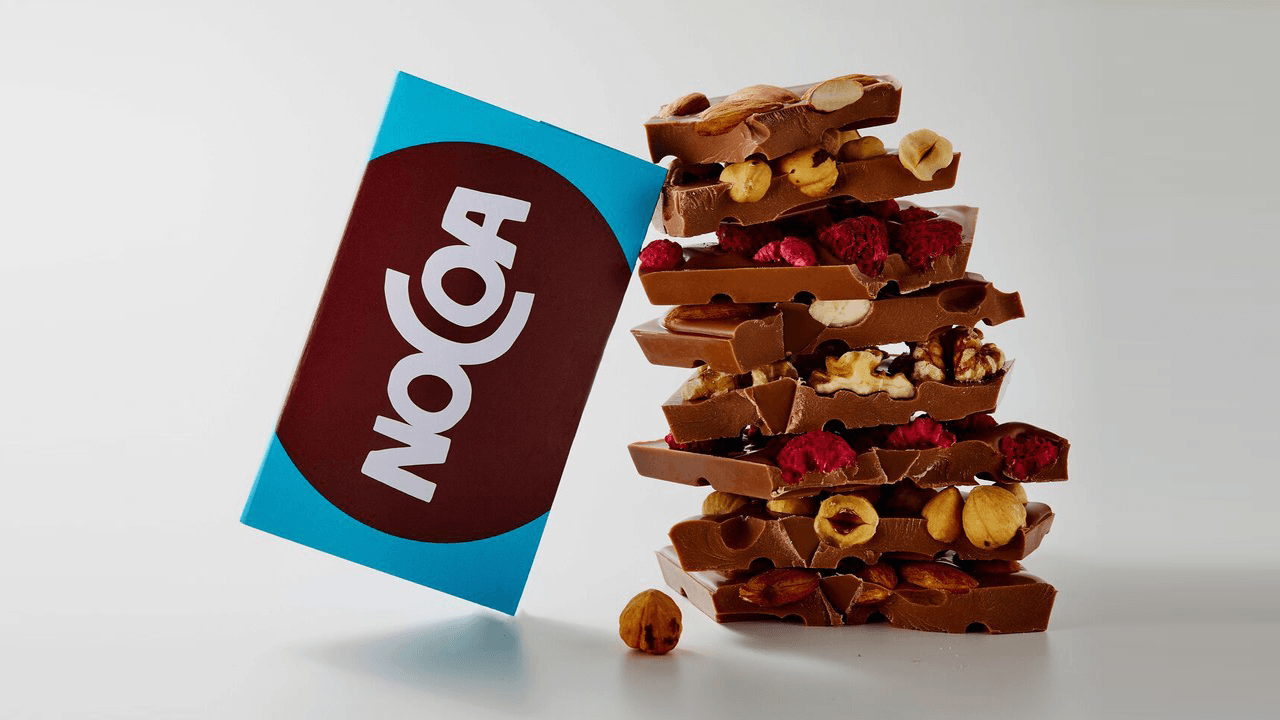All over Europe, food tech startups are using technology to improve how food is grown, produced, distributed, and consumed to reduce the environmental impact, improve animal welfare and ensure safe working conditions for growers.
And it's slowly moving from niche to mainstream. Just last month the EU finally approved the sale of frozen, dried and powdered mealworm beetles and crickets for human consumption. This brings the number of insects you can (intentionally) put on your plate to eight. Expect to see growth in insect restaurants such as Berlin's Entocycle.
But it's not just insects. An increasing number of startups are changing the way food is grown and made to improve its environmental impact. Let's take a look:
Nocoa (Germany)
Cocoa-free chocolate is now a thing, and it's called Nocoa.
So why take out the chocolate? Well, cocoa is water intensive and threatened by climate change. And palm oil, often in cheap chocolate, is just as bad.
Both crops cause massive yearly deforestation, especially in tropical climates, which are often burnt to the ground destroying the native habitat for endangered species to make way for plantations.

In response, German startup Planet A Foods (formerly known as QOA) uses proprietary technology to ferment plant-based ingredients such as oats as an alternative to cocoa and palm oil.
Combining Nocoa Concentrate and Nocoa Butter creates Nocoa, a "delicious cocoa-free chocolate, with 90% less CO2."
The crops are grown and harvested locally and the chocolate is made at the company's headquarters in Munich, reducing precious carbon miles. The company has raised a $6.1 million in funding over three rounds.
Better Dairy (UK)
Cows are terrible carbon emitters. But even plant-based dairy has room for improvement especially when its made from nuts, requiring massive amounts of watering in drought-intensive regions.
But now there's another way.
Better Dairy leverages novel advances in synthetic biology, precision fermentation, and food science to create sustainably produced products, that are vegan-friendly and retain similar molecular identities, flavour and nutritional profiles to traditional dairy.
The company has raised $26.9 million in funding over three rounds.
Revo Foods (Austria)
Revo Foods is a company that loves seafood, so much so that they want to reduce overfishing. Their solution is seafood made 100% out of plants, keeping oceans healthy and full of fish.

The first Revo product, Revo Salmon, was released in November 2021. Now a variety of products are available in over 20 countries.
The company has raised €4 million in funding over two rounds.
Neggst (Germany)

Few people could question the ethics or environmental impact of commercial chicken and egg manufacturing. But now your eggs can truly become before the chicken.
Berlin startup Neggst claims to be the world's first company to develop a two-component plant-based egg white and yolk, as well as an eggshell that mimics nature.
It wants consumers to see its eggs as an upgrade from the chicken egg. The company raised €5 million in funding in 2022.
Yeasty (France)
Beer drinkers unite! Yeasty gives the by-product of beer brewing a second life by developing a "delicious, nutritious and sustainable super-ingredient" through the natural power of yeast and an alternative source of protein.
It's early days for this company, but I wholeheartedly approve as an Australian who grew up eating Vegemite (savoury yeast extract) on toast. Yeasty has raised €1.4 million in funding over two rounds.
BioTech foods (Spain)
Cell-grown meat is fast becoming a commercial reality.
BioTech foods make what it calls ethical meat. Made in a lab, cells are painlessly harvested from a sample of animal tissue, which multiplies in a biological environment controlled by humans in the same way as they would in the animal's body.
Despite the interest in lab-grown meat in North America and Asia, Europe has yet to catch up to the trend, being slow to approve sale in supermarkets or restaurants.
But change is coming, and BioTech Foods has raised €11.1 million in funding over six rounds.
Lead image: Nocoa.



Would you like to write the first comment?
Login to post comments